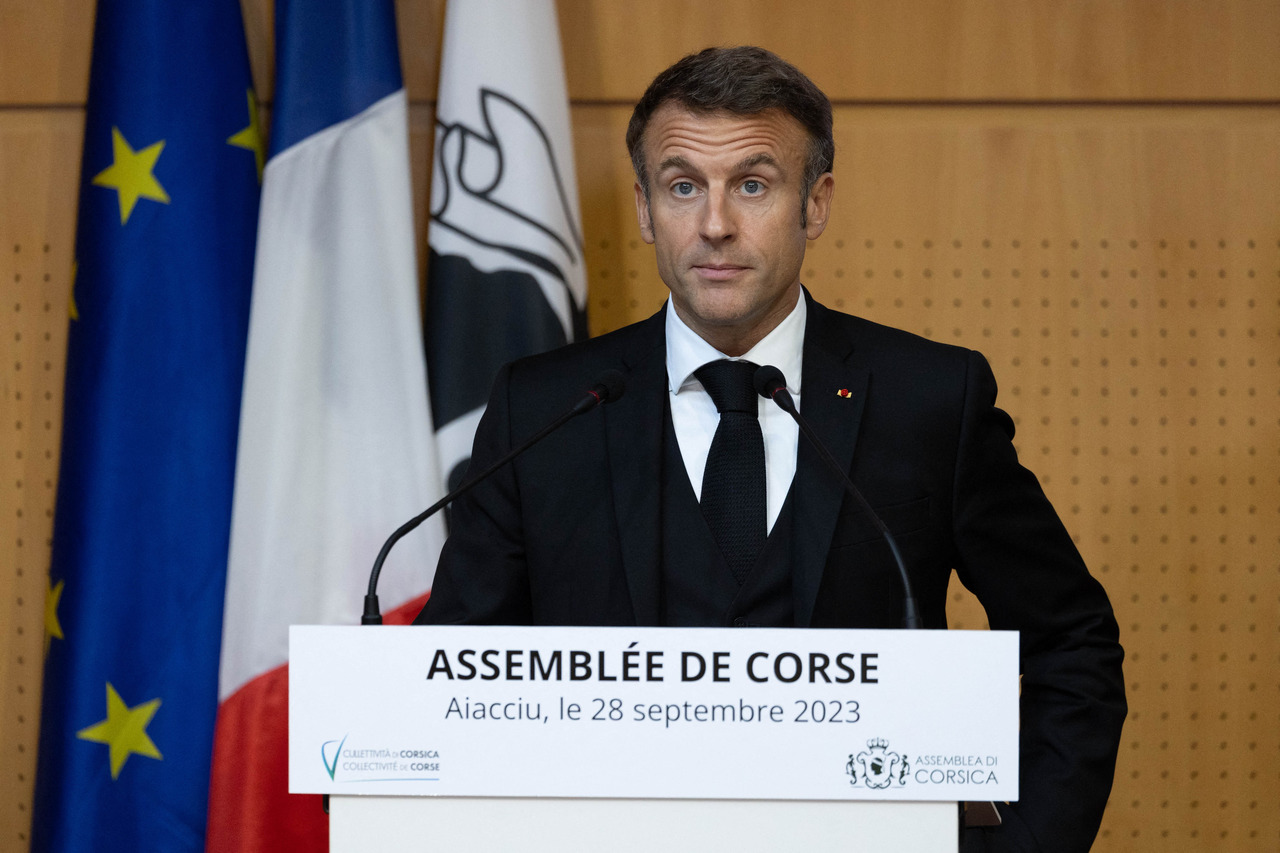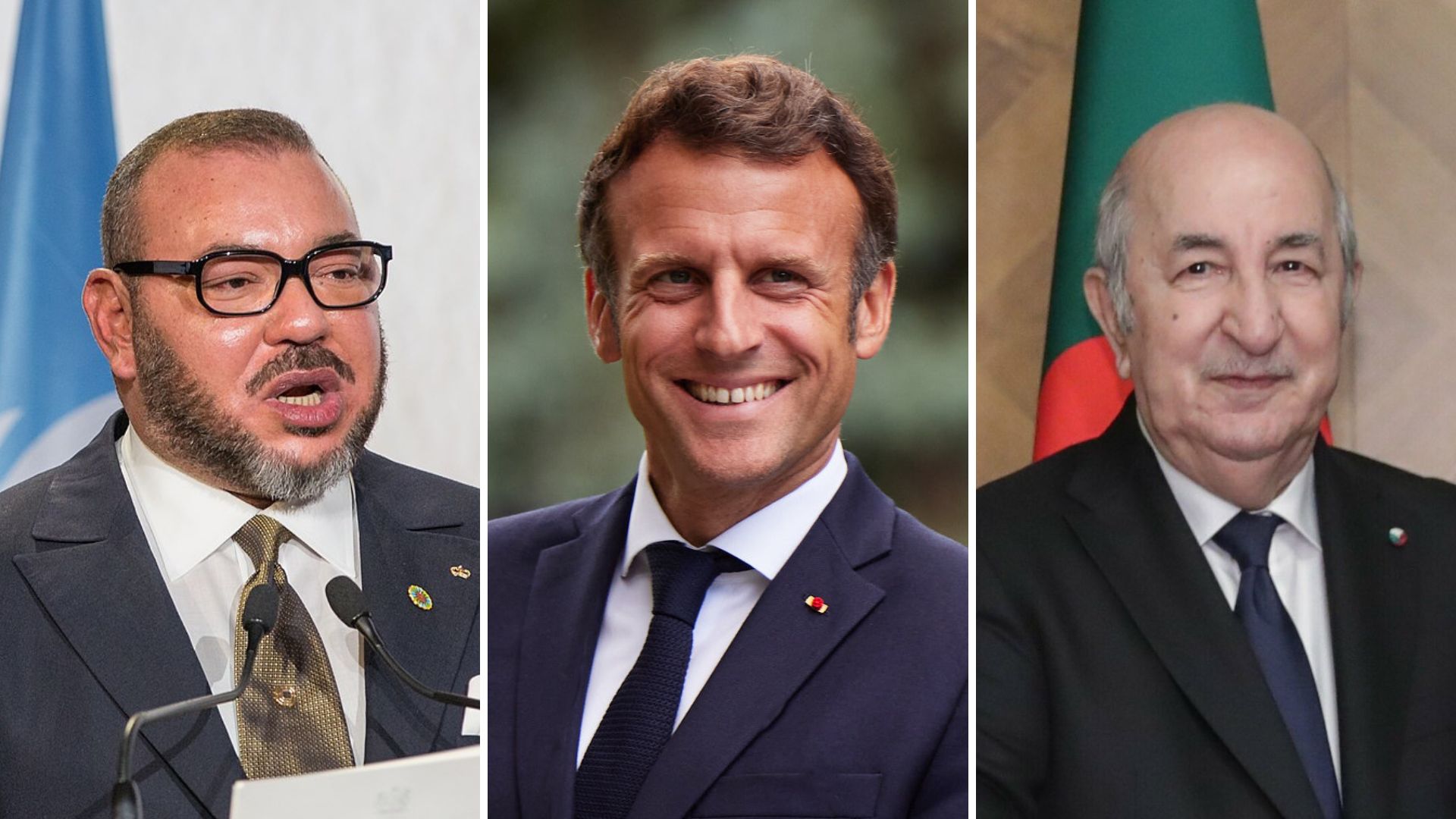Discussions About the Status of Corsica Open a Constitutional Pandora's Box
At the end of September, Emmanuel Macron visited Corsica. In a speech before the Corsican Assembly in Ajaccio, the French president spoke in favour of greater autonomy and the inclusion of its specificity in the French constitution. In this way, the government is looking for a way out of the political crisis escalating on the island for over a year now. Macron’s declarations are part of a broader discussion on the necessary constitutional changes in France and the directions of the government’s actions towards territories outside mainland France.
 Lafargue Raphael/ABACA / Abaca Press / Forum
Lafargue Raphael/ABACA / Abaca Press / Forum
Three weeks before the 2022 French presidential elections, a wave of riots and protests broke out in Corsica following the death of separatist Yvan Colonna, who had been sentenced to life imprisonment for the murder of a prefect in 1998. Mortally wounded by a fellow prisoner, Colonna was seen as a symbol of Corsican separatism and the struggle for the island’s independence. The issue of Corsica’s status then became part of the public debate in France again. In response to the increase in tensions on the island and mass anti-government protests, during which the central authorities were accused of, among other things, not properly protecting Colonna, the interior minister announced talks with representatives of Corsica regarding changing the island’s status. Separatist incidents regularly occur in Corsica, fuelling anti-government public sentiment. Although the negotiations have not led to a consensus, Macron’s speech in Ajaccio opened a new policy stage towards Corsica.
Corsica’s Status and Political Situation
The island was incorporated into France only at the end of the 18th century. Corsicans speak their own language and have a strong sense of cultural identity. Corsica is a community with a special status according to Article 72 of the French Constitution. Its institutional specificity consists of the Corsican Assembly, the Executive Council of Corsica, and the Economic, Social, Environmental and Cultural Council of Corsica. Community bodies have powers, including over education, culture, sports, tourism, and environmental protection.
The last two decades have seen increased support for Corsican nationalist parties. This is in part because of economic difficulties and the increase in real estate prices pushed up by newcomers from outside the island. In the 2021 regional elections, 32 out of 63 seats in the Corsican Assembly were won by Femu a Corsica party that supports increased autonomy. On the political scene, there are also groups putting forward independence demands, such as Partitu di a Nazione Corsa and Corsica Libera (7 seats in total) and Core in Fronte (6 seats in total).
In Corsica, the destabilisation of the internal situation is accelerating. In addition to the public protests, several violent nationalist organisations are also active. Among them, and one of the most active, is the National Liberation Front of Corsica (FLNC), which has admitted to, among others, carrying out 17 attacks on the island between April 2022 and March 2023, mainly on villas and residential buildings. The FLNC criticises the local authorities of a lack of control over political issues on the island, especially regarding the issuance of building permits to people from outside the island, which it perceives as settler colonisation. He considers the attitude of Corsican politicians towards the central authorities to be insufficiently decisive on the issue of independence. The FLNC committed similar attacks in October this year under the banner of no common future between Corsica and France. The FLNC rejects decentralisation plans—its goal is independence.
Talks with the French Government and Corsicans’ Demands
Talks with Corsican politicians about the island’s future that started last year have reached an impasse. It stems from the different visions of its status, as the Corsican Assembly has not agreed on a single project of autonomy. In one proposal, left-wing nationalists call for the legal recognition of the “Corsican nation”, the co-official status of the Corsican language, and the recognition of the connection between the Corsican nation and its land by introducing a resident status, which is intended to limit the right to purchase real estate on the island. It also assumes that the agreement will be submitted to a referendum in Corsica and become a separate chapter in the French constitution, guaranteeing autonomy. A second text, proposed by the right-wing, less radical opposition assumes adapting French law to the specificity of Corsica and introducing autonomous management of education, health, and tax policies.
Macron wants the institutional change to occur within the framework of Corsica’s affiliation with the Republic and does not agree to create two categories of citizens. The president's approach heralds a less radical direction of institutional changes. Macron declared in Ajaccio that he wanted to reach an agreement with the Corsican parties within the next six months so that proposals to change the constitution could then be presented to the National Assembly and the Senate. According to the chairman of the Executive Council of Corsica, Gilles Simeoni, representing Femu a Corsica party, the president’s attitude gives a chance to end the political impasse.
Status of Overseas Territories
The issue of the status of Corsica has revived discussions on institutional changes for overseas territories among their representatives (this applies to several territories located in the Indian, Atlantic, and Pacific Oceans, inhabited by more than 2 million people). Significant development differences between the overseas territories and France are at the heart of these discussions. The problem concerns, among others, the general standard of living, higher food prices, and poorer education and infrastructure. The nature of connections with Metropolitan France limits their economic, industrial, and social development. Local politicians also call for greater access to the regional environment.
On the occasion of the 65th anniversary of the adoption of the Constitution of the Fifth Republic in October this year, Macron referred to the need to change it. His proposals included widening the scope of the referendum and the need for “better constitutional recognition” of overseas territories. Macron signalled his willingness to rebuild the “entire territorial architecture” of France, referring to the process of decentralisation and increasing the powers of local authorities. Territories regularly demand the abolition of the constitutional distinction under which some are essentially legally linked to the Metropolitan and others are governed by their organic laws. One of the demands of overseas communities is to allow each territory to have a status according to its chosen degree of autonomy and to modify the too-rigid conditions of institutional evolution.
Conclusions and Perspectives
The lack of agreement on the direction of institutional evolution will cause tensions in Corsica to intensify in the coming months. The safety of the local population and entities operating on the island, such as banks and insurance companies, will be at risk. They may be attacked under the pretext of fighting companies and institutions supporting land sales. It will be crucial to clarify the scope of autonomy acceptable to the central authorities. The introduction of resident status could result in discrimination against some French citizens living on the island, while the legal equalisation of the Corsican language with French will make the work of all civil servants difficult or even impossible. Corsica will probably receive additional regulatory powers in certain areas under the delegation concluded by the parliament to issue lower-level normative acts in an act of the rank of law. The future of the autonomy project will depend on the president’s ability to convince right-wing parties in the National Assembly of the need to constitutionally regulate the island’s status and the benefits of stabilising the situation in Corsica.
The development of the situation may affect the authorities’ policy towards overseas territories. The introduction of several changes to the constitution of the Fifth Republic is one of the critical assumptions of Macron’s policy in his second term. Regulating the institutional situation of overseas territories in the constitution will be repeated in subsequent election campaigns. Their development is vital for maintaining the territorial integrity of France. It will impact the EU’s approach to the outermost regions (including Guadeloupe, French Guiana, Réunion, Martinique, Mayotte, and Saint-Martin) and the EU’s overseas countries and territories (having constitutional links with Denmark, France, and the Netherlands). An essential point in the negotiations will be the status of New Caledonia, which has strong independence aspirations and is strategically important for the French presence in Asia and the Pacific.



